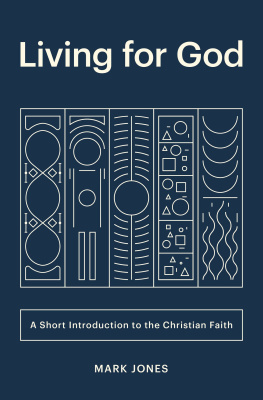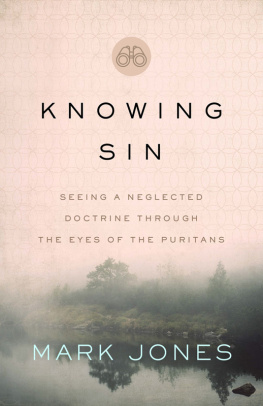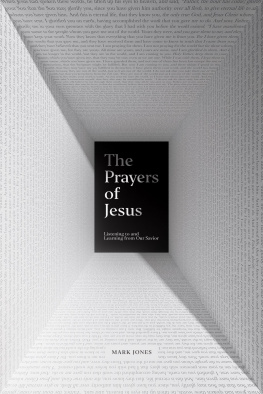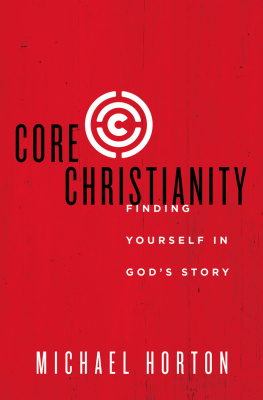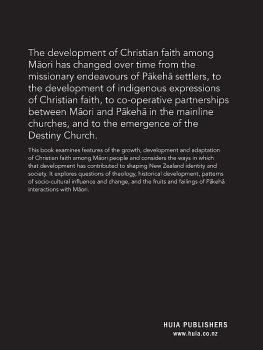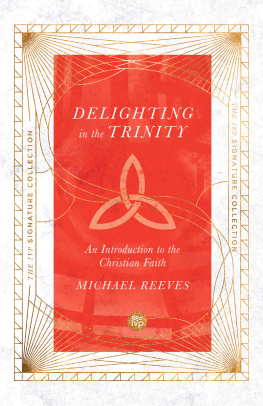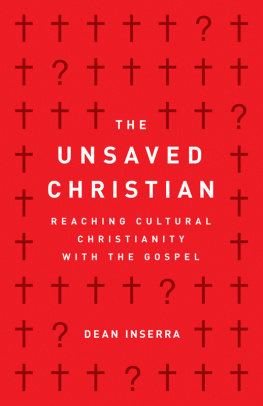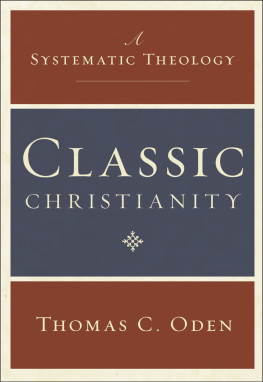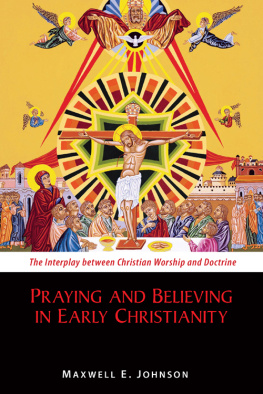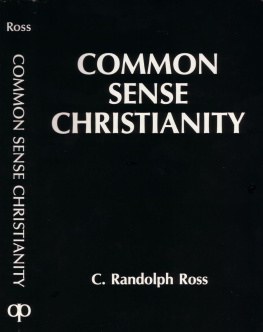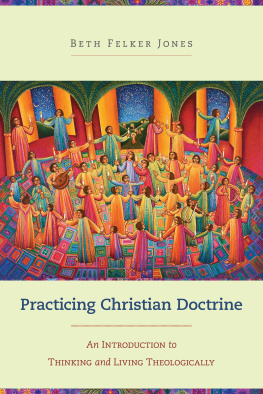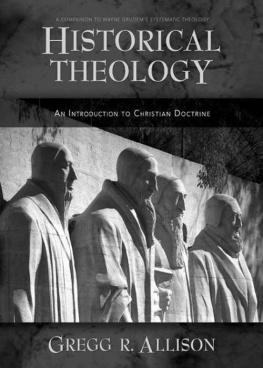Table of Contents
Landmarks

Introduction
C. S. Lewis, On the Reading of Old Books, in God in the Dock: Essays on Theology and Ethics (Grand Rapids, MI: Eerdmans, 1970), 205.
William Ames, The Marrow of Theology , trans. and ed. John D. Eusden (1968; repr., Grand Rapids, MI: Baker, 1997), 77.
Petrus van Mastricht, Theoretical-Practical Theology , vol. 1, Prolegomena , ed. Joel R. Beeke, trans. Todd M. Rester (Grand Rapids, MI: Reformation Heritage Books, 2018), 98.
Van Mastricht, Theoretical-Practical Theology , 1:99.
Richard Baxter, Church-History of the Government of Bishops and Their Councils Abbreviated (London, 1680), from the section What History Is Credible, and What Not, immediately after the preface.
Richard Baxter, Now or Never , in The Practical Works of Richard Baxter (London: James Duncan, 1830), 7:558.
Baxter, Now or Never , in Practical Works , 7:558.
Arianism, the founder of which is arguably Lucian (the teacher of Arius), who died more than thirteen years before the Council of Nicea in 325.
Francis Turretin, Institutes of Elenctic Theology , ed. James T. Dennison Jr., trans. George Musgrave Giger (Phillipsburg, NJ: P&R, 1992), 1.14.24.
Quotations from the Westminster Standards come from the original edition printed in London in 1647. I have updated the language for readability.
Van Mastricht, Theoretical-Practical Theology , 1:98.
Chapter 1
Dynamic Monarchianism sees the three as expressions of power for the same person, meaning that Jesus the man was empowered or adopted (thus Adoptionism) by the Godhead in his adoption as Gods Son at his baptism.
Fred Sanders, Who Said The Trinity: Try to Understand It, and Youll Lose Your Mind?, The Scriptorium Daily (blog), August 29, 2009, http:// scriptorium daily .com /who -said -the -trinity -try -to -understand -it -and -youll -lose -your -mind/ .
In Philip Schaff, The Creeds of Christendom, with A History and Critical Notes (New York: Harper, 1919), 66.
person as a distinct manner of subsistence or being, distinguished from the other persons by its own properties. These distinguishing properties he gave as follows:
The Father is the only fountain of the Godhead (John 5:26, 27; Eph. 1:3).
The Son is begotten of his Father from eternity (Ps. 2:7; John 1:14; 3:16).
The Spirit is said to proceed from the Father and the Son (John 14:17; 16:14; 15:26; 20:22).
John Owen, The Works of John Owen , ed. William H. Goold (London: Banner of Truth, 1967), 1:472.
Parts of this section are adapted from Joel R. Beeke and Mark Jones, A Puritan Theology: Doctrine for Life (Grand Rapids, MI: Reformation Heritage Books, 2012), 9193. Used by permission of Reformation Heritage Books.
Quoted in Stephen R. Holmes, The Quest for the Trinity: The Doctrine of God in Scripture, History and Modernity (Downers Grove, IL: InterVarsity Press, 2012), 132.
Gregory of Nazianzus, Orations , 40.41, as quoted in Robert Letham, The Holy Trinity: In Scripture, History, Theology, and Worship (Phillipsburg, NJ: P&R, 2004), 378.
This is so in a metaphorical sense, not in the modalistic sense of a sunbeam described in the introduction.
Charles Hodge, Systematic Theology , 3 vols. (Grand Rapids, MI: Eerdmans, 1968), 1:443.
Owen further states,
The sum of it is: That God is onehis nature or his being one: that all the properties or infinite essential excellencies of God, as God, do belong to that one nature and being: that this God is infinitely good, holy, just, powerful; he is eternal, omnipotent, omnipresent; and these things belong to none but himthat is, that one God: that this God is the Father, Son, and Holy Ghost; which are not diverse names of the same person, nor distinct attributes or properties of the same nature or being, but one, another, and a third, all equally that one God, yet really distinguished between themselves by such incommunicable properties as constitute the one to be that one, and the other to be that other, and the third to be that third.
Owen, Works , 16:340.
Owen, Works , 16:33941.
Chapter 2
Parts of this section are adapted from Mark Jones, Worship, Tabletalk , November 1, 2011, https:// www .ligonier .org /learn /articles /worship/ . Used by permission of Tabletalk .
John Piper, Let the Nations Be Glad! The Supremacy of God in Missions , 2nd ed. (Leicester, UK: Inter-Varsity Press, 2003), 17.
Augustine, On Christian Doctrine , ed. Marcus Dods (Edinburgh: T&T Clark, 1892), 10 (1.5).
J. I. Packer, A Quest for Godliness: The Puritan Vision of the Christian Life (Wheaton, IL: Crossway, 1990), 204.
Thomas Goodwin, The Works of Thomas Goodwin (Grand Rapids, MI: Reformation Heritage Books, 2006), 8:37879.
Owen writes,
The soul, by the power of its own conscience, is brought before the law of God. There a man puts in his plea, that he is a child of God, that he belongs to Gods family; and for this end produces all his evidences, every thing whereby faith gives him an interest in God. Satan, in the meantime, opposes with all his might; sin and law assist him; many flaws are found in his evidences; the truth of them all is questioned; and the soul hangs in suspense as to the issue. In the midst of the plea and contest the Comforter comes, and, by a word of promise or otherwise, overpowers the heart with a comfortable persuasion (and bears down all objections) that his plea is good, and that he is a child of God.... When our spirits are pleading their right and title, he comes in and bears witness on our side; at the same time enabling us to put forth acts of filial obedience, kind and child-like; which is called crying, Abba, Father (Gal. 4:6).
John Owen, The Works of John Owen , ed. William H. Goold (London: Banner of Truth, 1967), 2:241.
Modified from John Owen, Communion with God , in Owen, Works , 2:23649.
Owen, A Practical Exposition upon Psalm CXXX, in Works , 6:459.
Chapter 3
Quoted in Maturin M. Ballou, Edge-Tools of Speech (Boston: Ticknor, 1886), 497.
Quoted in Geo. C. Needham, ed., The Life and Labors of Charles H. Spurgeon (Boston: D. L. Guernsey, 1883), 439.
Augustine, The Confessions , trans. Maria Boulding, ed. John E. Rotelle, vol. 1 of The Works of Saint Augustine: A Translation for the 21st Century (Hyde Park, NY: New City Press, 1997), 1.1.
John Calvin, Commentary upon the Acts of the Apostles , ed. Henry Beveridge (Edinburgh: Calvin Translation Society, 1844), 276.
This idea, found in many sermons (e.g., by Thomas Watson [16201686]) and books on theology (e.g., by Nicholas of Cusa [14011464]), comes from The Book of 24 Philosophers . See Liber Viginti Quattuor Philosophorum , ed. Francoise Hudry, Hermes Latinus 3.1, Corpus Christianorum, Continuatio Mediaevalis 143A (Turnhout, Belgium: Brepols, 1997), 1: Deus est sphaera infinita cuius centrum est ubique, circumferentia nusquam.
Augustine, Confessions , 1.4.
Augustine, Confessions , 1.4.
Anselm of Canterbury, Proslogium , in Phillip Campbell, The Catholic Middle Ages: Primary Document Catholic Study Course (Grass Lake, MI: Cruachan Hill Press, 2016), 60; language modernized.
Chapter 4
J. C. Shairp, Culture and Religion in Some of Their Relations (New York: Hurd & Houghton, 1871), 144.
George Herbert, Herberts Poems (London: W. Baynes and Son, 1824), 159.
Augustine, Sermons 184229 , trans. Edmund Hill, ed. John E. Rotelle, vol. 6 of The Works of Saint Augustine: A Translation for the 21st Century (Hyde Park, NY: New City Press, 1993), 191.1.
Chapter 5
John Calvin, Institutes of the Christian Religion , ed. John T. McNeill, trans. Ford Lewis Battles (Louisville: Westminster John Knox, 2008), 2.16.1.

